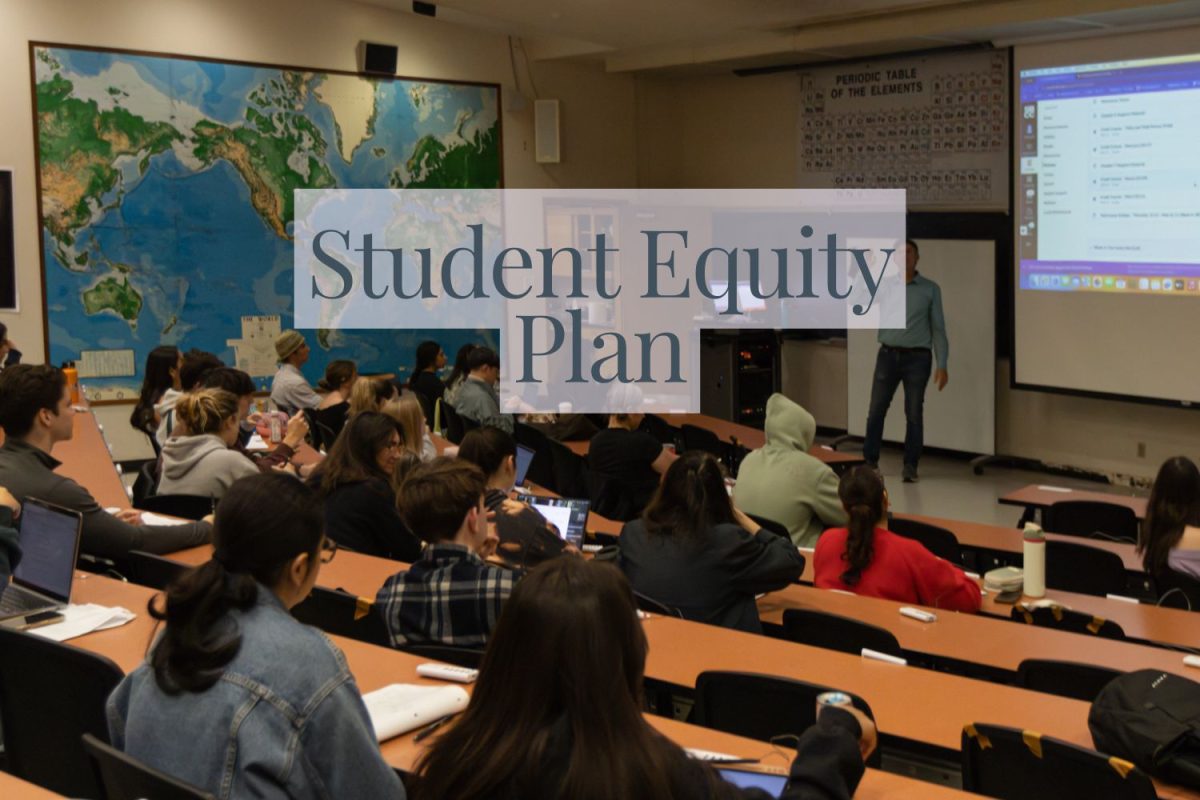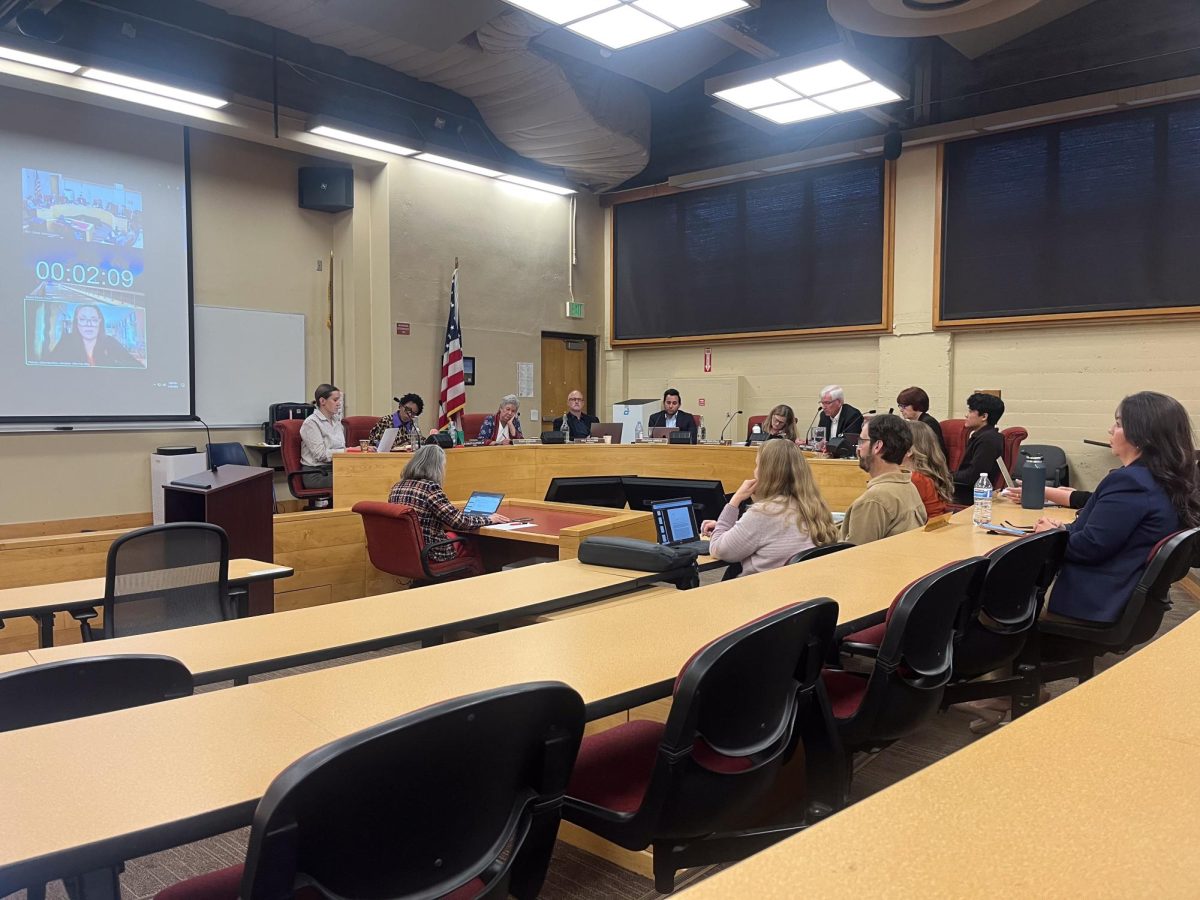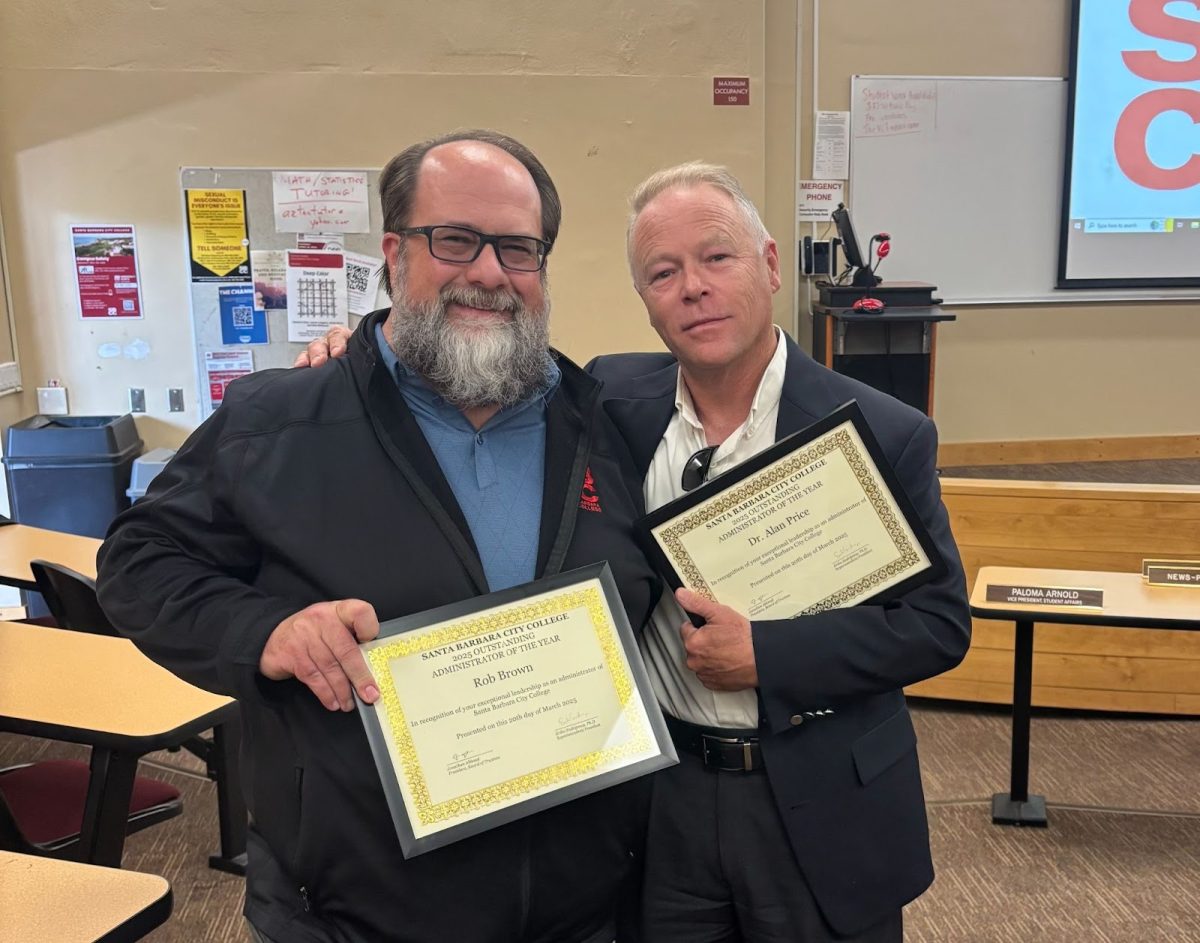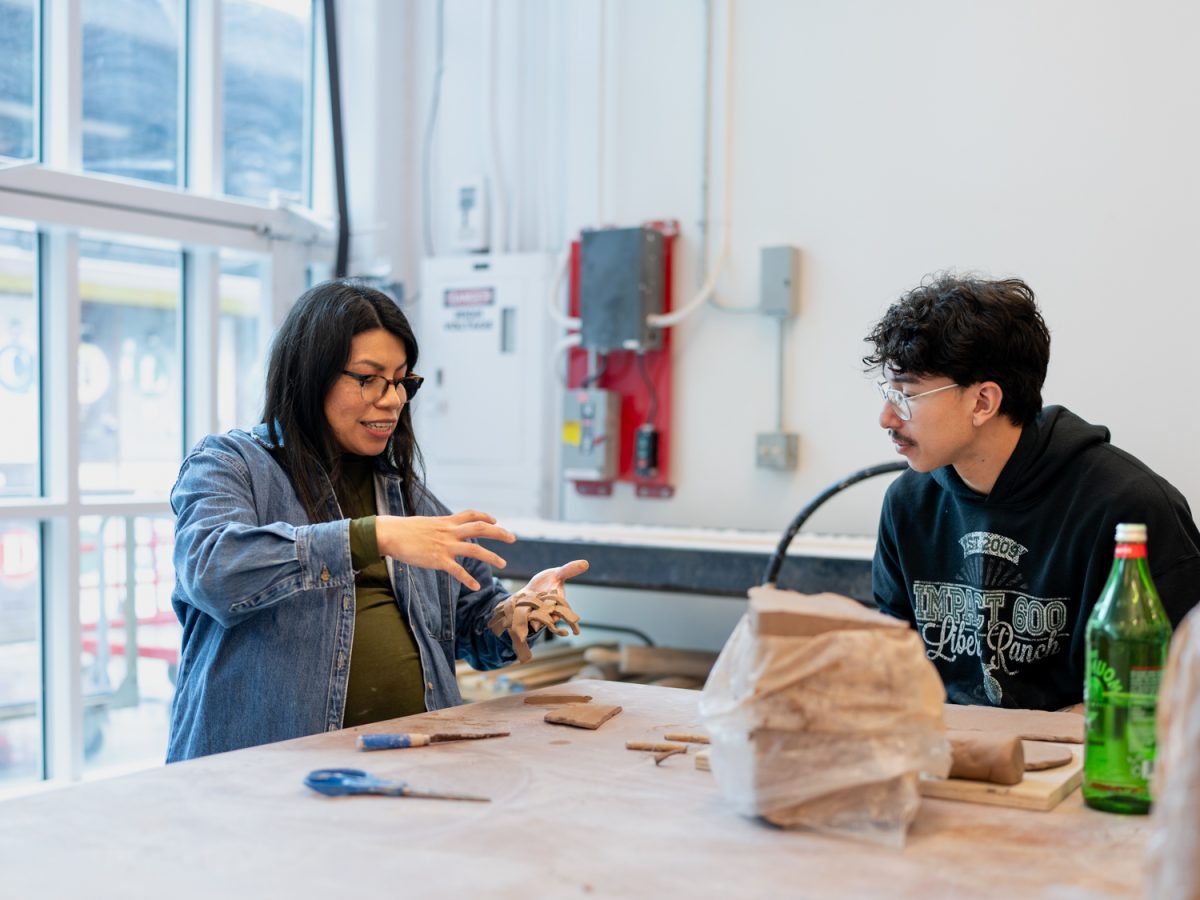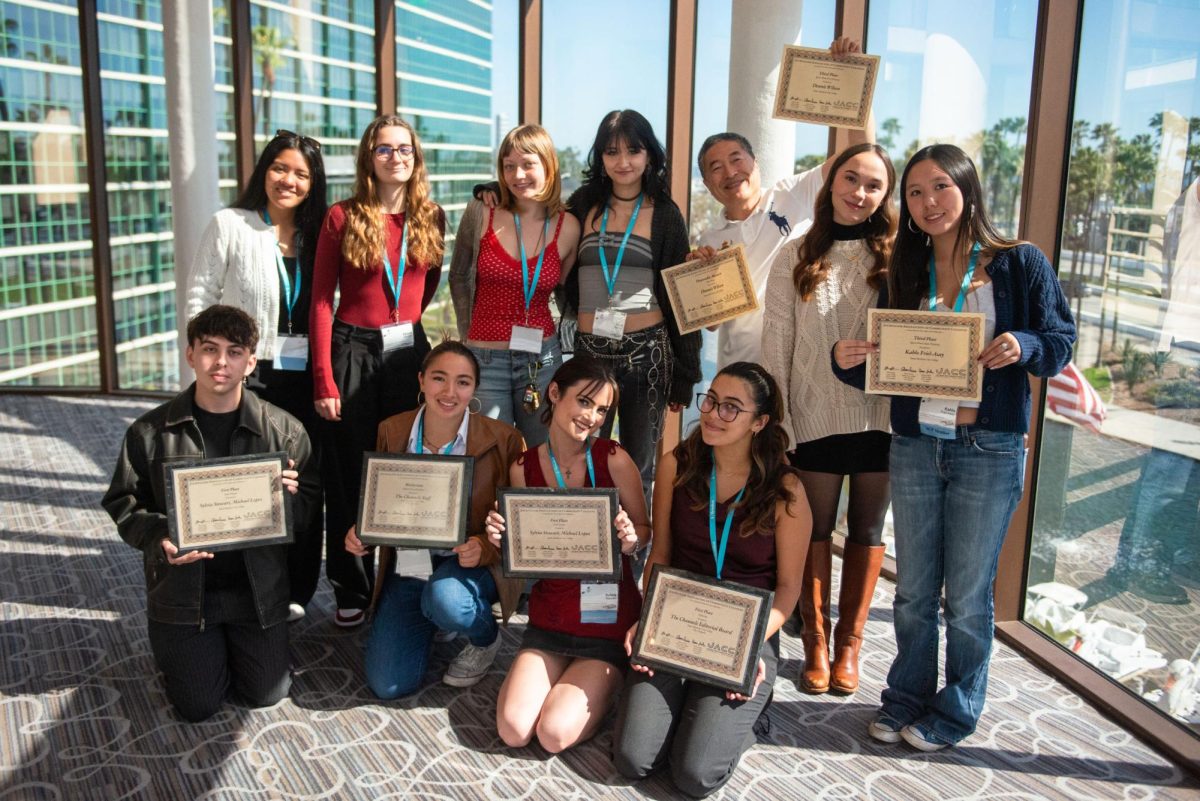Faculty members reviewed and discussed the draft of an anti-racism resolution and the budget created by the Student Equity and Achievement group at the Academic Senate Wednesday.
The resolution was created by senators Cornelia Alsheimer, Eileen Vlcek-Scamahorn, Christopher Ulivo, and Geordie Armstrong.
“It was definitely not easy,” said Ulivo, representing the fine arts department and the presentor of the resolution.
The resolution was created to provide a solution to the former discussion the senate had about creating a more inclusive campus.
Some senate members suggested the resolution be worded differently.
“I would like to add anti-racism to the last bullet please,” said Melissa Menendez, representing the English department. “There are anti-bias and anti-sexism, but there is no anti-racism, and we need to spell that out.”
Menendez said some faculty members have expressed concern about the senate’s lack of action, and the lack of specificity in regards to anti-racism solutions.
Some senators said they would like to see more improvement in resources for diversity and more effort in the pursuit of equity.
“We were trying to create a link in a way that would not expose us to overstepping,” said Ulivo.
In taking steps toward these goals, the senate secured a Crossroads anti-racism training session which will be held June 26 – 28 of this year.
“We listened with our head and our hearts. We have supported two more cohort Crossroads training and now have been working towards this resolution,” said Patricia Stark, president of the Academic Senate.
“It has been slow but I think the commitment has been there. It’s not enough, but it’s not nothing.”
The senate also reviewed the Student Equity and Achievement’s final report.
The SEA has been working to create a solution to the students who were affected by the downsizing in the math and English departments, brought on by Assembly Bill 705.
The group presented its final budget to the senate, estimating around $4.2 million would be needed to fund equity, counseling, enrollment, tutorial and more.
“The major function of the SEA workgroup was to say okay we have this amount of money, how much of the pot should go to a different area to support students the best we can,” Nevins said.
Some senators were not happy about the lack of communication between the senate and the SEA.
“This workgroup met seven times and never did we as the senate had to opportunity to give out input or see what the workgroup was developing,” said Gwyer Schuyler. “This is a lesson for us moving forward.”
Some senators also showed concern in regards to the budget.
“Something that you said, Dean, worries me,” said Dolores Howard, representing the school of modern languages and English as a Second Language, to Dean Nevins, representing the science department. “Your statement that ‘we like to empower people to make their own decisions,’ concerns me.”
Due to the number of departments affected by the bill, the senate spoke about putting at least three other seats on the SEA Committee Membership.
“This is going to be the hardest year on record,” said Pamela Ralston, representing the educational program. “All the developmental students are still here, and they are now distributed across the entire curriculum of English 110.”
The senate will continue the discussion at its next meeting on April 24.




